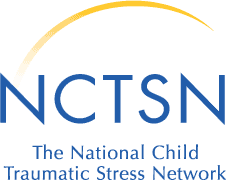The Jewish Community Youth Foundation (JCYF) celebrated its 19th year at its annual Check Presentation Ceremony which was held online on February 27th. More than $36,000 was distributed to 21 non-profit organizations by 121 teens representing 12 Synagogues and 29 area schools.
JCYF is a project of JFCS of Greater Mercer County and the Ricky and Andrew J. Shechtel Philanthropic Fund. The program has disbursed $967,043 since its inception 19 years ago.
Highlights from the evening included a live trivia quiz about this year’s program. The quiz winner designated one of the JCYF recipient agencies as the winner of an additional grant. The Annual Alumni Award was presented to Robbinsville alumna Mandi Lichtenstein, class of 2020, for her outstanding work at Elon University. Mandi designated Mazon – A Jewish Response to Hunger as the recipient of her $360 award prize. Jonah Adler of Lawrenceville spoke about how wisdom, understanding and divine inspiration impact the important decisions we make.
This year, teens from all over Mercer and Bucks counties met to discuss ways to make a difference in local, national and international communities. They enjoyed meeting again in person and on Zoom where they were exposed to a broader range of agencies and resources. One participant commented that a highlight for them this year was “Being together in person again with my friends working on helping our Jewish community.” Agency representatives from all over the world were interviewed and explained how their projects could help those in need. Part of this year’s curriculum included Amplify Our Impact 2021, which provided an opportunity to increase giving by reaching out to family, friends and community contacts. One participant said “I enjoyed reaching out to my family members and talking to them about JCYF and how it supports great causes.”
Harrison Fehn, class of 2022, of Bordentown explained “[JCYF’s] value is immeasurable on Jewish youth as it teaches us, from a young age, how to evaluate grants, allocate funds, and most important of all, collaborate. JCYF is an organization that I would deem necessary for any aspiring Jewish leader to partake in before they have graduated.”
Sophie Berman, a member of the JCYF Senior Class and Hamilton resident mentioned, “I developed a passion for helping others and giving to those in need. JCYF taught me the importance of philanthropy and my Jewish identity. I have learned copious amounts of leadership skills that will aid me as I move into the next chapter of my life.”
Scott Nahoum, West Windsor resident and member of the graduating class said “JCYF strengthened my commitment to giving while maintaining my Jewish identity. I now have a passion for social justice and engaging volunteers to fight poverty in the Jewish community and beyond.”
For more information, contact Celeste Albert, Coordinator of Teen Programs at JFCS of Greater Mercer County, at 609-987-8100 x210 or celestea@jfcsonline.org, or visit the JCYF Web Page.
See this story on CentralJersey.com.






 Resources in Response to the Robb Elementary School Shooting
Resources in Response to the Robb Elementary School Shooting



 Today’s threat on TikTok for potential school violence has spurred widespread concern and anxiety.
Today’s threat on TikTok for potential school violence has spurred widespread concern and anxiety. 
